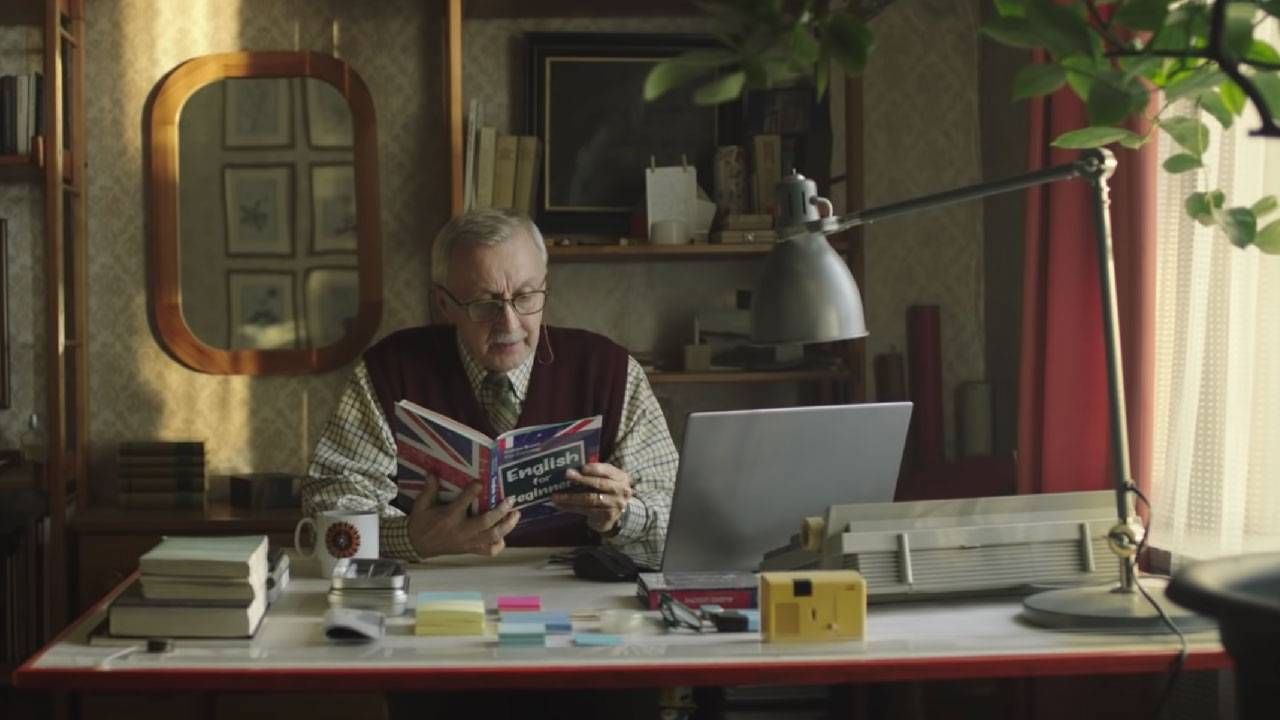Selling the Idea of Pro-Aging Advertisements
We should convince marketers to create ads that accurately reflect the character and value of older adults
By now most of us are familiar with such classic advertisements as Wendy's "Where's the Beef?" or Life Alert's "I've Fallen and I Can't Get Up!", which depict older adults like me in stereotypically defective ways. It should go without saying that consumers age 50-plus don't appreciate being characterized as comical, incompetent, stubborn, tech-averse people.

However, too many advertisers still don't seem to get that message, despite the fact that the older-adult market is a huge and lucrative one, well worth engaging.
In our ageist society, older consumers need to become marketers of their own social value, and to enlist others in that cause.
Creating pro-aging ads isn't rocket science; it just takes a willingness to abandon the belief that fear-based messages presenting aging as a process to ridicule or dread are the best vehicles for generating sales.
In our ageist society, older consumers need to become marketers of their own social value, and to enlist others in that cause. The targeted "customers" are the companies who continue to turn out shoddy products in the form of discriminatory ads.
In other words, marketers must be sold on the idea of creating pro-aging ads. Luckily, such models already exist.
Here are three examples of how older adults can be depicted realistically, without being mocked, debased or pathologized:
Ad #1 — Allegro, a Polish E-Commerce Platform Trading Company
Like all compelling ads, this one tells an engaging story. A man living independently decides he wants to learn English. His reason, as yet unknown to the audience, inspires him to order a kit online (yes, he's computer literate) and later a suitcase. He has a goal, which he knows will be a challenge, but because he has a positive sense of his own aging, he believes he can achieve it. What's more, he finds a creative, low-tech way to assimilate new vocabulary and is diligent and persistent, even when he makes mistakes.
There are humorous moments that aren't presented at his expense. And lest we think he's lonely or isolated, we learn that he has a female friend and is quite capable of international travel on his own. We finally learn the motive behind our hero's personal endeavor in the ad's kicker, the last thing he says … in perfect colloquial English.
Ad #2 — Subaru
After her trip, a grateful grandmother gets a ride home, probably from the airport, in her granddaughter's car. The conversation in the car is supportive and sharing; their little adventures show the grandmother to be fun-loving, proactive, and a really "cool" person to be around. The auto's selling point is that the grandmother had inspired her granddaughter to get the same kind of reliable car that she owns. This ad is a paean both to legacy and to intergenerational appreciation.
Ad #3 — French Telecommunications Company Bouygues
This is my all-time favorite pro-aging ad. It begins with a quirky father with a good sense of humor who's a kind of maverick, believing that Redbone's "Come and Get Your Love" is an appropriate holiday tune for his Christmas compilation ("Compil' Noël") tape. Various Bouygues products are subtly presented throughout the lifespan of the father and his son, showing the evolution of those products (ATM to car stereo to flip phone to smartphone). This parallels the evolution of the father-son relationship, throughout which the father's passion and lightheartedness never fades.
The commercial ends with an acknowledgment of the father's legacy through the son's relationship to his own child — yet another case of intergenerational sharing.
Want more examples? Check out this one by DocMorris, a German pharmaceutical company. And this one, by Amazon. And this one by Allegro.
Don't assume that all older adults are mindlessly brand loyal.
All of these commercials are elegant, imaginative, compassionate and effective. Producing others like them merely requires more proactive creativity and less lazy, stereotypical thinking. The effort can pay off handsomely, once companies and their ad agencies realize that they have been working against their own interests by promoting messages that marginalize current — and future — older adults.
Elders are primed to buy quality products. Let's all convince marketers to create more effective ways to sell them.
My Advice for Advertisers
Tell us a story that makes us care and with which we can identify. The overwhelming majority of us are neither uber-elders who skydive nor cartoon characters who angrily chase kids off our lawns with brooms. In general, we don't want to be seen as extraordinary; ordinary is fine. But we do want to be seen — and respected.
Depict us as the complex individuals that we are. We tend to defy the neat boxes into which marketers and advertisers seem to want to put us. Although this is obvious to most of us, we need you to be aware of it, too.
Address the reality of our challenges as well as our willingness and ability to overcome them. Don't assume that all older adults are mindlessly brand loyal. Show us how your products can directly and practically affect our quality of life. We can be amazingly flexible, creative and resilient in finding ways to deal with limitations. And we are inspirational models for others when we do.
Use humor in ways that build us up, not tear us down. We appreciate jokes about the human condition that allow others to laugh with us rather than at us.
Show us having affirming, productive relationships with others, especially those of younger ages. Illustrating how all of us go through this lifelong process together can add value to your marketing and build your consumer base.
Include us older adults on your marketing teams. Even before you get to the focus group stage of an already prepared advertisement, front-load your effort by using older writers, designers and production people. Not only will the resulting ad be more appealing to 50-plus consumers, it will save you time and money in the process.
The bottom line is this: Know that the messages you use to sell to us may also be seen and unconsciously absorbed by younger people. In welcoming us, you also welcome their future consumer selves.
And after all, isn't that your goal?

Social gerontologist and Ageful Living blogger Jeanette Leardi is a Portland, Oregon–based community educator and public speaker who gives popular presentations and workshops on ageism, brain fitness, creativity, health literacy, and caregiver support. Her essays, articles, and book reviews have appeared in Next Avenue, The Charlotte Observer, The Oregonian, The Dallas Morning News, Stria, ChangingAging, and 3rd Act Magazine. Read More

